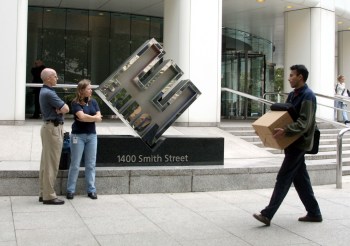Question: Chris – At the end of last year, everyone and their dog was predicting major gains in the stock market in 2011 (barring unpredictable disasters such as terrorist attacks, etc.). It has been a long time since we saw this much consensus amongst the financial experts. Is it safe to perhaps try and take advantage of this and shift the stocks to bonds ratio in my retirement portfolio by about 10% or so (e.g., from 50:50 to 60:40)? I am 51 years old and playing catch-up to some degree. As always, I am putting all new money into equities (and rebalancing a couple of times a year). But how about trying to make a little something off of that “old” money? Darn tempting. Skip, Burgess Junction, WY
Answer: I’m empathetic to your optimism. The stock market is up some 95% from its low reached on March 9, 2009. All signs point toward an economy with the headwinds turning into tailwinds. You don’t want to take a crazy roll of the dice, either, with a notion of moving from 50% equities to 60%.
That said, I think your strategy is too risky for several reasons. The bottom line: You could end up worse off if the gamble goes wrong.
For one thing, it’s a time-honored insight on Wall Street to become cautious when a consensus forms. Grizzled veterans have learned the hard way that when enough investors are optimistic about high and rising equity prices it doesn’t take much of a setback to send these same investors–and stock prices–reeling.
For another, stocks are inherently risky. It’s in the nature of the beast. Now, I like equities and you can lower some of the risk of ownership with diversification. Yet the combination of recent experience and a substantial body of finance research makes a convincing case that stocks may be riskier than a lot of advice suggests.
For instance, according to Paul Kaplan, vice president of quantitative research at Morningstar, the stock market has declined by 20 percent or more every decade or so, on average. Two of the three biggest declines occurred in the past decade. Stocks are risky because the good returns might not cancel out the bad ones.
Finally, you want your savings to be there when you retire. The problem with trying to play catch-up by taking on more risk is that it might not work out. You could fall farther behind.
I’d prefer that you focus on saving more, even though I know that is incredibly easy advice to write and very hard to do. Yet that’s a “safe” way to play catch-up. The other tactic I would pursue at the same time is to plan for working longer. You might think about part-time work when you’re older or maybe shift to a very different kind of job. But the longer you earn an income to less you’ll need to draw down on savings.
There’s a lot happening in the world. Through it all, Marketplace is here for you.
You rely on Marketplace to break down the world’s events and tell you how it affects you in a fact-based, approachable way. We rely on your financial support to keep making that possible.
Your donation today powers the independent journalism that you rely on. For just $5/month, you can help sustain Marketplace so we can keep reporting on the things that matter to you.


















